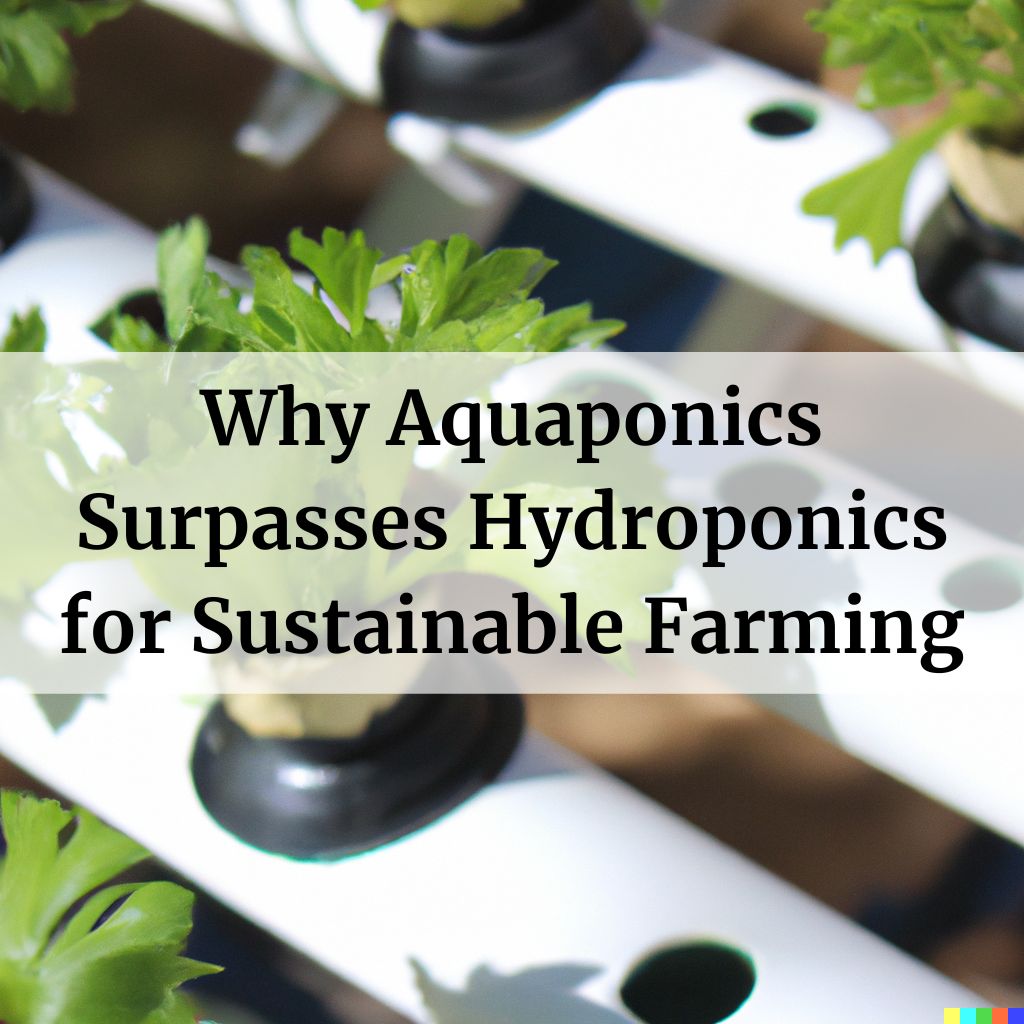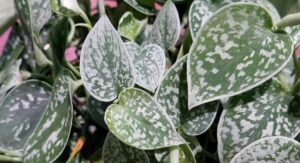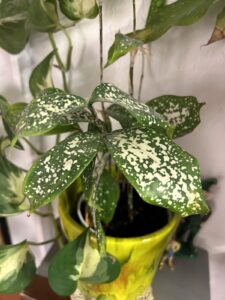
Aquaponics and hydroponics are both methods of growing plants without soil, using water as the medium. Important to note that aquaponics is not hydroponics, just as it is not aquaculture, it is a combination of the two and creates a mini-ecosystem.
“Aquaponics” is “aqua” meaning water and refers to the aquaculture (fish rearing) half of an aquaponics system. The second part, “ponics” refers to the growing technique of hydroponics, the plant half of an aquaponics system.
While many aspects and parts of hydroponics are in aquaponics, it is important they be treated as separate systems with separate problems, benefits and methods.
Aquaponics may be better than hydroponics for several reasons, depending on your goals and preferences. However, aquaponics also has some disadvantages, such as requiring more space, maintenance, and initial investment than hydroponics. Let’s take a closer look:
In this article
Advantages and Disadvantages of Aquaponic Gardening
Aquaponic gardening offers several advantages such as water efficiency, sustainability, high yield, reduced chemical usage, year-round gardening, space efficiency, limited pesticide use, flexibility in location, and being less prone to disease than hydroponics.
However, it also comes with disadvantages including high upfront costs, higher operational costs, high energy requirements, the need for daily maintenance and testing of water quality, limited plant selection, multiple ways the entire system can fail, limited crop variety, and electricity requirements for indoor systems.
| Advantages of Aquaponic Gardening | Disadvantages of Aquaponic Gardening |
|---|---|
| Water efficiency: Uses up to 10 times less water than traditional agriculture. | High upfront costs: Expensive to set up. |
| Sustainability: Uses less water and doesn’t rely on harmful chemicals or pesticides. | Higher operational costs than soil culture. |
| High yield: Can produce a high yield of fish and plants in a small space all year round. | High energy requirements: Requires significant energy. |
| Reduced chemical usage: Fish waste and beneficial bacteria become the nutritional backbone of plant growth, avoiding the need for harmful chemicals or fertilizers. | Skill and knowledge from two separate agricultural fields required. |
| Year-round gardening: Allows cultivation of produce all year, regardless of weather conditions. | Requires daily maintenance and testing of water quality for fish and plants. |
| Space efficiency: Vertical growing potential and compact footprint make it a space-efficient marvel. | Limited plant selection. |
| Limited to no pesticide use. | Multiple ways entire system can fail. |
| Flexibility in location. | Limited crops: Limited variety of crops that can be grown. |
| No weeding required. | Electricity requirements: Indoor systems depend heavily on artificial lighting and temperature controls. |
| Less prone to disease than hydroponics. | Outdoor setup prone to water temperature fluctuations and extreme weather conditions. |
READ MORE: Herbs That Grow Well in Aquaponics [Part 1]
Advantages and Disadvantages of Hydroponic Gardening
Hydroponic gardening offers several advantages such as extended growing season, improved growth and yield, higher plant density, suitability for various locations, and less water consumption.
But it also comes with disadvantages including the need for stricter irrigation control, higher installation cost, electricity usage for automatic irrigation systems, limited mobility for harvesting, and potential algae growth affecting water quality.
| Advantages of Hydroponic Gardening | Disadvantages of Hydroponic Gardening |
|---|---|
| Extended growing season: Allows year-round plant growth due to controlled temperature, light, and nutrient supply. | Stricter irrigation control required: Needs precise adjustment to plant and environmental needs. |
| Improved growth and yield: Enhances plant growth and increases crop production. | Higher installation cost: Initial setup expenses are higher compared to traditional methods. |
| Higher plant density: More plants can be grown in less space, making it space-efficient. | Electricity usage: Automatic irrigation systems require electricity, adding to operational costs. |
| Plants can grow anywhere: Suitable for various locations, including urban areas and places with limited outdoor space. | Limited mobility for harvesting: Mature plants are at waist height, making it challenging for individuals with limited mobility to harvest. |
| Less water consumption: Uses up to 90% less water than traditional farming methods. | Algae growth: Absence of soil and pumps can lead to algae growth, affecting water quality. |
READ MORE: Plants and Growth in Hydroponic Systems
Our Verdict
Aquaponics surpasses hydroponics for sustainable farming due to several key factors, mainly because aquaponics is highly water-efficient, using up to 10 times less water than traditional agriculture, and it operates as a closed system, minimizing waste and water pollution.
Additionally, aquaponics offers environmental benefits such as reduced chemical usage, high yield per square foot, and year-round gardening, making it crucial for growing more food sustainably.
Aquaponics also provides economic benefits by using fish feed instead of expensive chemical nutrients, making it more economically viable in the long run.
The benefits aquaponics has over hydroponics:
- Aquaponics is more sustainable and environmentally friendly. Hydroponics requires the use of synthetic fertilizers to provide nutrients to the plants, which can be expensive and harmful to the environment. Aquaponics, on the other hand, uses fish waste as a natural and organic source of nutrients, which reduces the need for external inputs and creates a closed-loop ecosystem. The fish also provide a source of protein, which can be harvested or consumed by the grower.
- Aquaponics is more resilient and adaptable. Hydroponics requires precise control over the nutrient solution, pH, temperature, and other factors, which can be challenging and time-consuming. Aquaponics, on the other hand, is more tolerant of fluctuations and imbalances, as the fish and the plants work together to regulate the system. Aquaponics can also grow a wider variety of plants, including fruiting crops, leafy greens, herbs, and flowers.
- Aquaponics is more rewarding and enjoyable. Hydroponics can be seen as a technical and mechanical way of growing plants, which may not appeal to some people. Aquaponics, on the other hand, is more of a natural and holistic way of growing plants, which can be more satisfying and fun. Aquaponics also allows you to interact with the fish and the plants, which can be relaxing and therapeutic.
On the other hand, hydroponics, while effective, has some limitations. Hydroponic systems require expensive chemical nutrients for plant growth, and the accumulation of salts and chemicals in the water may require cleaning, posing potential environmental challenges. In contrast, aquaponics creates a natural nitrogen balance, and water is never replaced, making it a more sustainable option. Aquaponics also requires less water and power overall, making it a more environmentally friendly choice compared to hydroponics.
In summary, aquaponics surpasses hydroponics for sustainable farming due to its water efficiency, environmental benefits, and economic viability, making it a more sustainable and eco-friendly choice for agricultural production.







